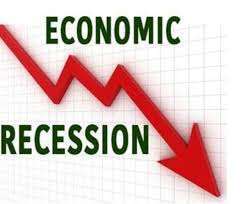Economic downturns currently ravaging the nation has forced Nigerians to abandon over 5.7 million bank accounts in 2021.
Reliable data obtained from the Nigerian Interbank Settlement System (NIBSS) Electronic-payment Fact Sheet for 2021 has indicated that 5.7 million bank accounts were abandoned in the year 2021 as the number of inactive bank accounts rose from 52.2 million in 2020 to 57.9 million in 2021.
The Bank Customers Association of Nigeria (BCAN) attributed this 11% increase to the difficulties in the economic environment in Nigeria.
It should also be that as more bank accounts were opened during the period, the number of active bank accounts rose 16 per cent to 133.5 million in 2021 from 114.5 million in 2020. Meanwhile the number of bank customers grew by 18.4 million or 18 per cent to 122.3 million in 2021 from 103.9 million in 2020.
We also deduced from the data that the number of current accounts rose by 14 per cent to 49.8 million in 2021 from 43.6 million in 2020, while the number of savings accounts increased by 7.8 per cent to 120.4 million in 2021 from 111.7 million in 2020.
While commenting on this development, the President BCAN, Dr. Uju Ogubunka, listed the drivers of inactive accounts in the banks to include the increase in the prices of goods and services, low income accompanied by low purchasing power of Nigerians, increasing rate of unemployment, immigration among other things.
He also noted that if the economy fails to recover, the banks should expect more inactive bank accounts by end of 2022 adding that such development would hinder the country in achieving its financial inclusion target.
He stated: “The rise in inactive bank accounts is a product of what is happening in the economy. You don’t run a bank account when you don’t have income. The rate of unemployment has increased making it impossible for some people to fund their bank accounts. Inflation rate is also rising which is also a factor making people spend more without having anything left to save or even send.
“If the income capacity of people increases and they have surplus after settling expenses, then they can go to the bank.”
Ogubunka then concluded that more inactive bank accounts should be expected by the end of 2022 if there is no improvement in the source of income of the people, and that will drag back the financial inclusion goal.

